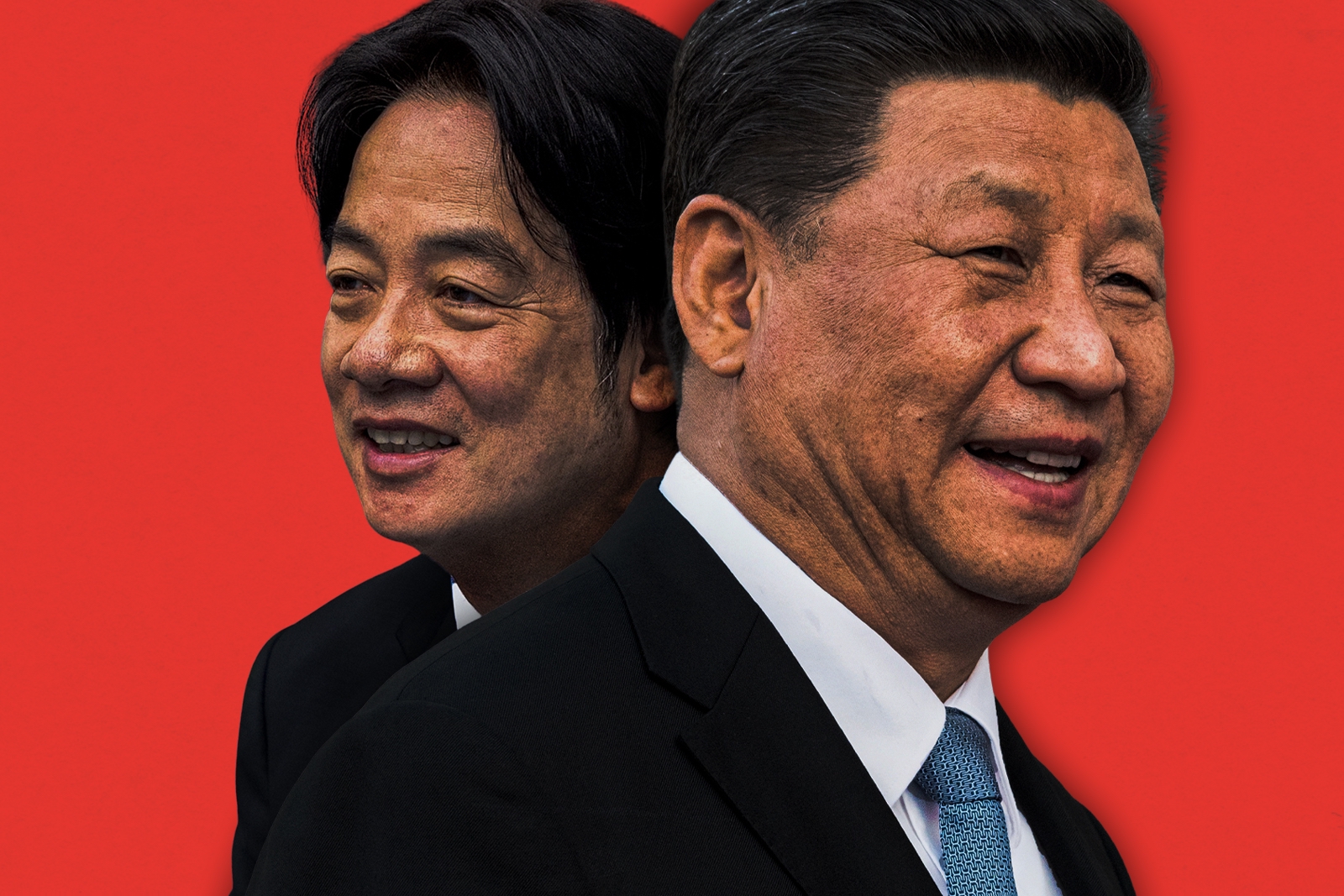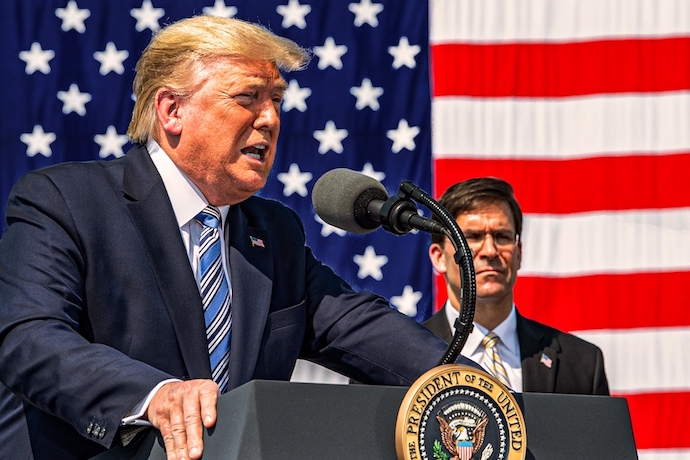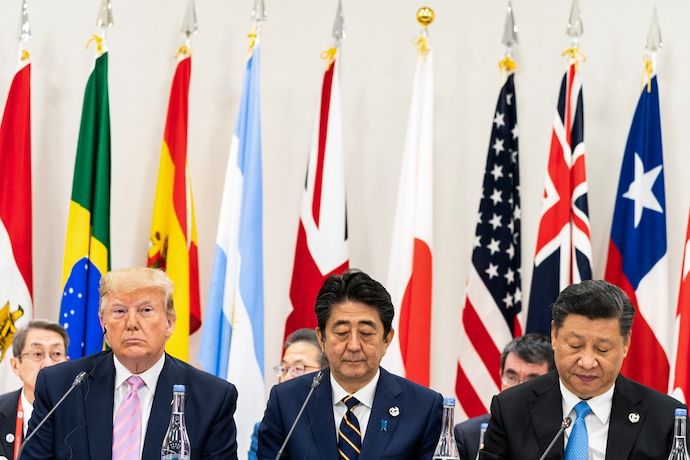
Taiwan’s Future in the Shadow of a Changing America
U.S. voters cast their ballots in November with their eyes fixed on domestic concerns, particularly the economy. Worries about rising inflation and diminished purchasing power under the Biden administration overshadowed other issues. Foreign policy barely registered as a decisive factor. Yet, the outcome of this election holds profound implications for America’s approach to Taiwan and its broader relationship with China in the years ahead.
While global attention has remained focused on Ukraine and the Middle East, Taiwan’s role as a potential flashpoint in U.S.-China relations is steadily growing. Analysts warn that the issue could escalate into open conflict, putting a region critical to global economic stability and security at stake.
Taiwan has governed itself independently since 1949, despite Beijing’s persistent claim that the island is part of Chinese territory. China has vowed to achieve “reunification,” using force if necessary. Yet, Taiwan’s population overwhelmingly supports the status quo, prioritizing self-rule without formal independence. In 2024, the pro-independence Democratic Progressive Party (DPP) secured its third consecutive presidential term, underscoring the island’s determination to preserve its autonomy.
Officially, the United States does not support Taiwan’s de jure independence. However, it does provide robust backing, including arms sales, to ensure Taiwan can defend itself. This policy, known as “strategic ambiguity,” involves rejecting the use of force to resolve the Taiwan issue while maintaining the capability to intervene if necessary. This nuanced stance aims to deter aggression without provoking Beijing unnecessarily.
Taiwan’s global participation, however, remains restricted. It continues to face exclusion from major international organizations such as the United Nations. For instance, at COP29 in Azerbaijan, Taiwan was represented only through an unofficial delegation.

Donald Trump’s re-election raises questions about the future of U.S.-Taiwan relations. Throughout his political career, Trump has taken a transactional approach to alliances, questioning commitments that could embroil the U.S. in conflicts. Yet, Trump’s first term saw significant engagement with Taiwan, including institutionalizing arms sales and introducing the “free and open Indo-Pacific” strategy in 2017.
Roy Chun Lee, Taiwan’s ambassador to the European Union, expressed cautious optimism in an exclusive interview with this publication. He emphasized bipartisan U.S. congressional support for Taiwan, particularly among Republicans. According to Lee, key figures in Trump’s circle, including Marco Rubio, have historically advocated for strong ties with Taiwan. However, he acknowledged the unpredictability of Trump’s foreign policy, noting the challenges of navigating potential shifts in military and industrial priorities under the new administration.
Ambassador Lee said, “Different presidents and administrations have different priorities and styles of governance, but we are generally confident that Taiwan’s support will remain strong and steadfast. This comes from the fact that there is a very clear and consistent bipartisan consensus in Washington on supporting Taiwan as a priority, especially so among Republican leaders.”
Professor Albert Shihyi Chiu of Tunghai University echoed these sentiments, pointing out that Trump’s transactional approach introduces uncertainties. Chiu speculates that Trump’s early months in office might prioritize trade negotiations with China over military confrontations. Yet, he sees an inevitable return to broader U.S.-China competition, with Taiwan remaining a critical issue. In particular, Chiu highlights Taiwan’s semiconductor industry as a likely focus of U.S. policy, given its pivotal role in global supply chains.
Professor Chiu told me during an interview that Trump’s victory “brings unpredictability for Taiwan, although the structure of the U.S.-China conflict appears one-directional and irreversible. In the first 7 to 8 months, President Trump may prioritize trade negotiations with President Xi over verbal confrontations or military escalations. However, in the long run, the U.S.-China conflict seems inevitable. Several of Trump’s cabinet appointees, such as Marco Rubio for Secretary of State, are relatively friendly toward Taiwan. However, others like Mike Pompeo and Nikki Haley, who have traditionally supported Taiwan, have been ruled out for Cabinet positions.”

Taiwan is also strengthening its outreach to Europe. In November, Foreign Minister Lin Chia-lung visited Brussels unannounced, seeking to deepen ties with the European Union. Despite such efforts, the EU remains cautious, balancing its approach to Taipei and Beijing. As China’s second-largest trading partner, the EU is wary of jeopardizing economic ties with the mainland.
Ian Bond, deputy director of the Centre for European Reform, believes Europe could benefit from U.S.-China decoupling. He argues that sectors like green technology and high-quality machinery may gain market share as trade dynamics shift. However, Bond also highlights the EU’s reluctance to engage directly on sensitive issues like Taiwan, preferring to focus on its economic priorities.
Bond points out that while Trump has often been critical of China, he “allegedly encouraged Chinse President Xi Jinping to build internment camps for the Uyghur minority in the Xinjiang region, and canceled U.S. sanctions against Chinese telecommunications firm ZTE as a favor to Xi. Trump’s advisers during the election campaign included several China hawks, but it is unclear whether they will be able to hold him to a consistent policy.”
Trump’s return to power adds complexity to Taiwan’s already precarious position. While some of his advisors are staunch China hawks, Trump’s decision-making is often guided more by personal instincts than consistent policy frameworks.
Richard Bush of the John L. Thornton China Center describes Trump as unencumbered by ideology, suggesting that his approach to Taiwan could reflect a transactional mindset. This could involve pressing Taiwan to increase its defense spending or expand its economic contributions to the U.S., potentially treating the relationship as a quid pro quo arrangement.
Richard Bush views Trump’s unpredictability as an asset in keeping adversaries off balance. Bush says that Trump is “not a policy micro-manager” and that much of his approach to Taiwan may depend upon who he selects for top policy positions.
“Trump could take a transactional approach to Taiwan, treating it like an insurance company might treat a client who underpays on his/her premium. Trump might squeeze Taiwan to benefit the American people, perhaps by increasing purchases of American defense equipment, investing more in the United States, or insisting Taiwan raise the amount it spends on its defense.”
Trump’s rhetoric has also raised eyebrows. During the campaign, he criticized Taiwan’s semiconductor dominance, claiming that the island had “taken our chip business” and that Taiwan should pay the U.S. for defense support. Such statements underscore the unpredictable nature of his foreign policy.
Taiwan’s challenges are not limited to U.S. relations. Beijing continues to ramp up military and political pressure, and the island’s diplomatic recognition remains sparse, with just 12 nations maintaining official ties as of May.
Elbridge Colby, a former U.S. defense official, has called on Taiwan to significantly increase its defense budget, warning that its “fate hangs in the balance.”
Bernard Dewitt, chair of the Belgian-Chinese Chamber of Commerce, a trade organization based in Brussels that seeks to promote close links between Belgium and China, prefers not to speculate on Trump’s position towards Taiwan. Instead, he offers his view on possible future U.S.-China relations under a second Trump presidency.
Dewitt says, “Trump’s ‘America First’ policy will most likely lead to further decoupling from China. This potentially means that some trade share could shift towards the EU in sectors where the EU has a competitive advantage over the U.S. (for example, green technologies, high-quality machinery), and lower competition from the U.S. in the Chinese market could then leave some room for our European companies. If the U.S. further withdraws from multilateral initiatives, there may be room for closer EU-China cooperation through the Belt and Road Initiative, for example.”
As Taiwan grapples with rising tensions in the Taiwan Strait and the uncertainty of U.S. policy under Trump, its future remains poised. While the international spotlight is fixed elsewhere, the choices made in Washington and Taipei in the coming years could reshape the geopolitical landscape of the Indo-Pacific—and the world. For Taiwan, navigating this turbulent era will require resilience and strategic foresight.
